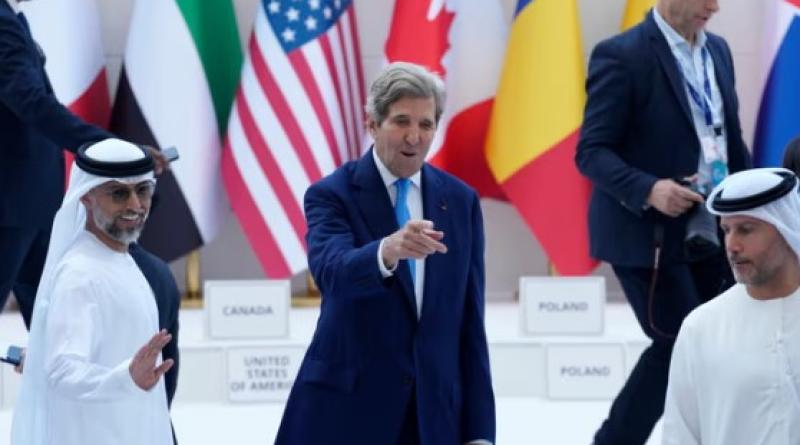Cop28: US commits to close coal-fired power plants – as it happened

Here are the key takeaways from the third day of Cop28:
-
At least 117 governments have agreed to triple the world’s capacity of renewable energy by 2030 and double the rate of energy efficiency improvements.
-
The US was one of several countries to join an alliance to phase out power plants that burn coal and has announced rules to cut its methane emissions.
-
Fifty oil and gas companies have signed a “decarbonisation charter” that analysts have criticised for ignoring the emissions spewed when customers burn the fuels.
-
Twenty-two countries have pledged to triple nuclear capacity by 2050.
-
Colombia, a major fossil fuel producer, has formally joined an alliance of nations calling for a fossil fuel non-proliferation treaty to prevent the “omnicide of planet Earth”.
Far from the suits and jargon of the climate summit – but still tightly linked – the fight for environmental justice continues in a very different form.
The authorities in Honduras have issued an arrest warrant for the alleged mastermind in the case of Berta Cáceres, the murdered Indigenous environmental leader, writes my colleague Nina Lakhani.
Cáceres was shot in her home by hired hitmen in March 2016 in retaliation for leading a grassroots campaign to stop construction of an internationally financed hydroelectric dam on a river considered sacred by the Lenca people. Cáceres was assassinated less than a year after being awarded the prestigious Goldman prize for environmental defenders.
Latin America is the most dangerous region in the world for those defending rivers, land and other natural resources against corporate greed, pollution, and extractive industries like mining and energy projects. Honduras, Mexico, Brazil and Colombia are among the most deadly countries in Latin America, and Indigenous people in particular are on the frontlines of fighting environmental destruction and the climate crisis.
Earlier this week, Quinto Inuma Alvarado, an environmental defender and Indigenous leader, was shot dead by hooded men in response to his work defending his land from illegal logging and drug trafficking in the San Martín region of Peru. He had spent years working to achieve collective titling for his community, which would allow them to effectively protect their land and forests of the Peruvian Amazon.
Indigenous environmental defenders like Caceres and Quinto risk their lives to protect the environment and address the climate crisis, yet they lack “adequate protection and are excluded from decision making”, according to a Global Witness report from 2022.
Indigenous delegates at Cop often struggle to get a seat at the negotiating table, and have long complained that their traditional knowledge and sustainable solutions are not taken seriously.





